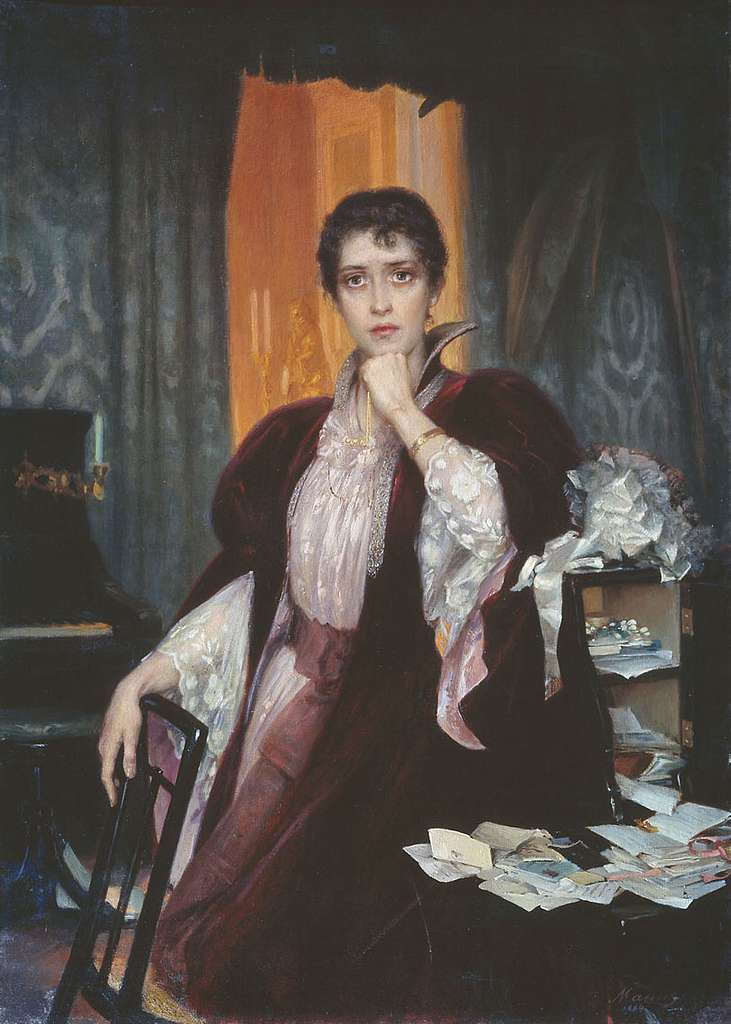Some time ago I stumbled upon a book called Top Ten: The Best Books According to 125 Writers. As the name suggests, it listed the top 10 books of 125 authors and from that created the ultimate top 10 list. I wrote a post about it. I thought it would be good reading inspiration, mostly for classics. It helped push me to read Middlemarch, which I loved. And so in September, I started from the top – with Anna Karenina and from there to Madame Bovary.
And here is the moment I need to take to say, that most of the 125 writers providing their top 10 lists for the book were men. This means men chose the best two books ever written to be stories of beautiful, well-off (well enough to have servants), bored, mentally unstable married women who don’t particularly like their daughters, and grow to deeply dislike every tiny detail about their husbands and have an affair. I find myself asking what that means. Probably better not to think about that too much and let’s just get to the books.
*Spoilers will follow.

No 1: Anna Karenina by Leo Tolstoy
In addition to being the number one book on the writers’ top 10 list, it’s also the top book of Readers Digest’s 100 of the Best Books of All Time list. It is on The Times and Refinery29’s list of best books of all time and on endless other lists. And I absolutely hated it.
It’s not that I hate books from that period in general. I got into reading thanks to Dickens’ David Copperfield and have loved all his other books. I recently read Pride and Prejudice and liked it surprisingly well, considering I am not a fan of romance writing at all. As mentioned, I read Middlemarch and loved it very much. But, having only read a bit of the Russians in school, I already had the suspicion it was not for me.
I have to confess that I could not manage to make it through all 36 hours of the audiobook. I bravely listened for 12 hours and started skipping a few parts from there. I mean if 1/3 of the book did not awaken some interest in any of the characters, there is not much hope the next third will. But I couldn’t just completely give up. So I skipped a few chapters here and there and read the summary of parts 4-6. I gave the book a last chance by listening to the last two parts in full.
I did not care about any of the rich, spoiled, bored, overly dramatic, self-centred characters whatsoever. Especially Anna. I get it, she has a mental illness and I, having struggled with depression for over a decade, should be more open to relating to her, but I just didn’t. I was relieved when Anna died.
The prominent theory is that she suffered from Borderline Personality Disorder (BPD). And probably from postpartum depression as well. I guess the problem is writing for me – her character was very much written by a man. In general, all the female characters only worried about their social life while the men had ‘deep’ thoughts. But in the end, all were depressed.
Of the roughly 10 main characters, three are suicidal – one in thoughts only, one giving it a shot (pun intended) and one succeeding. I get that at that time there was no such thing as mental health awareness, but that is quite a high percentage of suicidal rich people.
So all in all Tolstoy’s style of writing just isn’t for me, I guess.
No 2: Madame Bovary by Gustave Flaubert
So, here we go. Another pretty bored lady. This time she is so specifically bored, that she has gotten a condition named after her.
Madam Bovary Syndrome – a condition characterized by the chronic dissatisfaction of the person who suffers from it, the constant search for an idealized reality and the feeling of emotional emptiness.
Again, I could not muster up any sympathy for her. But at least Flaubert’s writing is wonderfully descriptive, quick and quite funny sometimes. And I did enjoy some of the lesser characters. And I did like her husband – so in love and wonderfully unaware of his wife’s ‘suffering’.
So I did make it through the whole thing (at 1.5 times the speed) at least without feeling like I was being tortured.
All in all, I am just flabbergasted that the top two books are basically romance novels about unhappy women. And I have been trying to figure out if I am completely missing a heart to understand them or am just not high-brow enough.
Anyhow, I will take a long break from Tolstoy and Flaubert. Meaning I am going to skip War and Peace (no. 3 on the list) for a while, and probably never gonna read no 4 – Lolita (Another Russian author and a book about an old man chasing a 12-year-old girl. Nope.) Again, a reminder – the list is mainly compiled by men.
But I got four books left from the top 10: The Adventures of Huckleberry Finn by Mark Twain, Hamlet by William Shakespeare, In Search of Lost Time by Marcel Proust, the stories of Anton Chekhov. I will get through them. Maybe.

